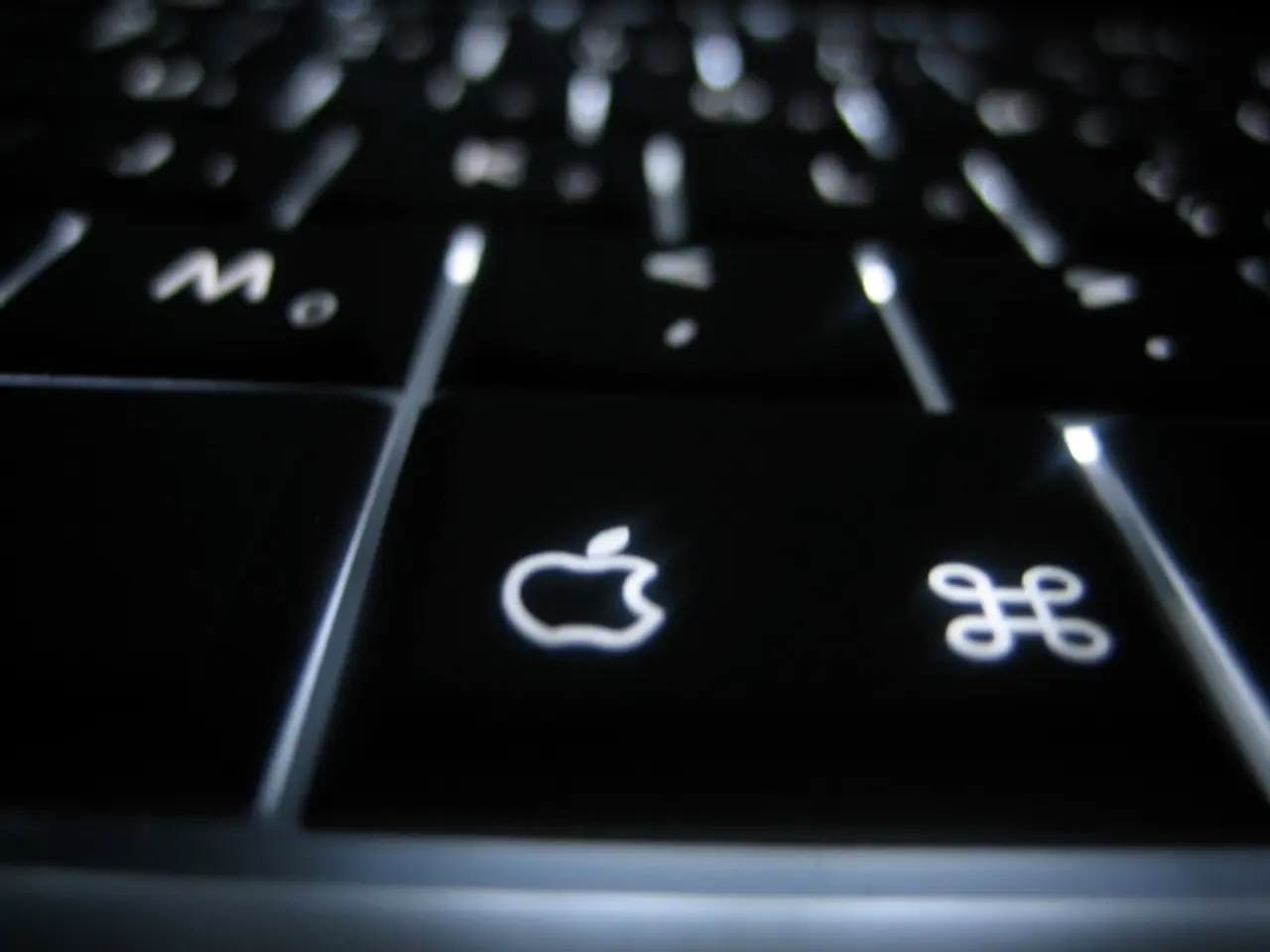Tim Cook, the head of Apple, designated AI as greater than the internet in importance during a recent gathering of company employees.
Apple has announced a significant shift in its strategy, focusing on establishing dominance in the field of artificial intelligence (AI). The tech giant, known for its innovative consumer electronics, is now setting its sights on becoming a leading player in AI, with a long-term, massive investment game planned over the coming decade.
The AI-enhanced Siri, initially slated for unveiling earlier this year, has been pushed back to next spring. However, this delay doesn't seem to deter Apple's ambitions. According to CEO Tim Cook, the company is planning to significantly increase its investments in AI and is open to acquisitions to facilitate this growth.
Cook has been emphasizing four key areas for Apple's AI strategy: personal intelligence, on-device privacy, ecosystem control, and building long-term user trust. The aim is to position Apple as a neutral and trusted platform, effectively becoming the "Switzerland" of AI models, with control over a valuable user base.
Apple's rise in revenue, primarily attributed to iPhone sales, is not a strength in AI. However, Cook has indicated that the company is actively reallocating a fair number of people to focus on AI features. In the last year, 12,000 workers were hired, with 40% joining research and development teams.
Cook has referred to the AI revolution as "as big or bigger" than the internet. In line with this, Apple has pledged to invest over $500 billion in the U.S. economy over the next four years, prioritizing domestic manufacturing, R&D, and data center expansion to support their AI infrastructure. This includes constructing a new facility in Texas to produce servers for their Private Cloud Compute and recruiting an additional 20,000 employees focused heavily on AI and machine learning.
In terms of chip development and technology projects, Apple is reportedly working on designing in-house AI chips, internally code-named ACDC. The company has also teamed up with Broadcom to develop its first AI chip, Baltra, with mass production expected to begin by 2026.
Apple's research is pushing to challenge the prevailing AI paradigm, shifting from cloud-centric large generative AI models to reliable, secure, and private on-device intelligence that integrates deeply with personal context. The aim is to create AI experiences that competitors will struggle to replicate without compromising their own revenue streams, securing Apple’s ecosystem as the premier platform for next-generation personal intelligence.
However, despite these ambitious plans, Apple is nowhere near the top when it comes to the AI race. The leadership overhaul following the fallout of LLM Siri has "supercharged" Apple's work in AI development, according to senior vice president of software engineering Craig Federighi. Federighi seems confident in LLM Siri's future, claiming that the new "end-to-end revamp of Siri" will deliver "a much bigger upgrade than we envisioned."
Tim Cook admitted that the company has fallen behind competitors in the AI race during a global all-hands meeting. However, he promised employees that Apple will be making necessary investments to catch up. Cook's commitment to AI, coupled with Apple's significant resources and innovative spirit, suggests that the tech giant is poised to make a strong comeback in the AI arena.
[1] Source: TechCrunch
Apple's strategy is transitioning from a consumer electronics-focused company to a leading player in artificial intelligence (AI), with a long-term investment plan of over $500 billion in the U.S economy, prioritizing AI research, development, and infrastructure.
The company is actively working on designing in-house AI chips and collaborating with Broadcom to create its first AI chip, Baltra, set for mass production by 2026, further emphasizing their commitment to AI and artificial intelligence technology.




